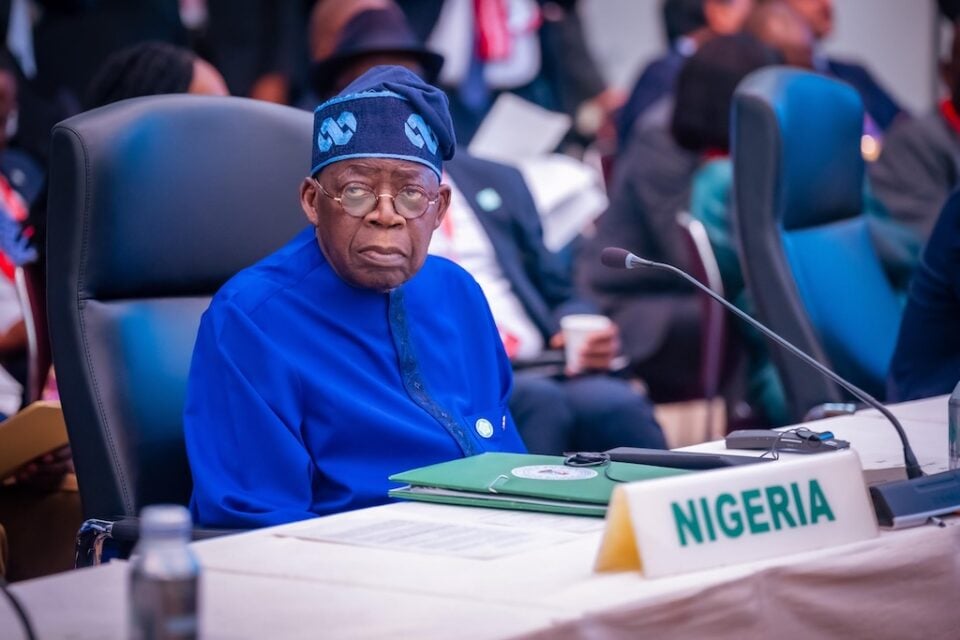The Presidency has rejected the World Bank’s recent report estimating that 139 million Nigerians live in poverty, describing the figure as “unrealistic” and disconnected from the nation’s actual economic conditions.
Special Adviser to President Bola Tinubu on Media and Public Communication, Sunday Dare, made this known on Wednesday in a post on his official X handle, insisting that the figure must be “properly contextualised” within the framework of global poverty measurement models.
“While Nigeria values its partnership with the World Bank and appreciates its analytical input, the poverty figure quoted must be properly contextualised. It is unrealistic,” Dare said.
According to the Presidency, the World Bank’s estimate was based on a global poverty line of $2.15 per person per day—set in 2017 under Purchasing Power Parity (PPP)—which does not represent an actual headcount of poor Nigerians.
It explained that the $2.15 benchmark, when converted to nominal value, equals nearly ₦100,000 per month at current exchange rates, which is far above Nigeria’s new minimum wage of ₦70,000.
“There must be caution in interpreting the World Bank’s numbers as real-time headcounts,” the statement said. “The estimate is a modelled projection, not an empirical measure of current living conditions. Nigeria’s trajectory today is one of recovery and inclusive reform.”
The Presidency added that the PPP-based poverty methodology relies on outdated consumption data—Nigeria’s last survey was in 2018/2019—and fails to account for the vast informal and subsistence economies sustaining millions of Nigerians.
Dare noted that what truly matters is the direction of change, stressing that Nigeria’s economy is on a path of reform and recovery under the Tinubu administration.
He highlighted key social and economic programmes launched to cushion the effects of recent reforms, including:
Conditional Cash Transfers: Expanded to reach up to 15 million households nationwide, with over ₦297 billion disbursed since 2023.
Renewed Hope Ward Development Programme: Delivering micro-infrastructure and social services across 8,809 wards.
National Social Investment Programmes: Strengthened initiatives like N-Power, GEEP micro-loans (TraderMoni, MarketMoni, FarmerMoni), and the Home-Grown School Feeding scheme.
Food Security Initiatives: Subsidised grains and fertiliser distribution, mechanisation projects, and the revival of food reserves.
Renewed Hope Infrastructure Fund: Financing key energy, road, and housing projects to reduce living costs and create jobs.
National Credit Guarantee Company: Expanding affordable credit access for small businesses, women, and youth entrepreneurs.
The Presidency said these interventions are aimed at tackling structural distortions that have hindered productivity for decades. It described policies such as fuel subsidy removal, exchange rate unification, and fiscal reallocation as “painful but necessary choices” to fix the root causes of poverty rather than its symptoms.
“Even the World Bank has acknowledged that these reforms are restoring macroeconomic stability and growth momentum,” the statement noted, citing recent remarks by the institution’s officials.
The government reaffirmed that its medium-term focus is to ensure macroeconomic stability translates into better welfare—affordable food, quality jobs, and reliable infrastructure.
“Nigerians will begin to see visible improvements in food prices, incomes, and purchasing power as these programmes mature,” the statement said.
It added that the administration is integrating all welfare programmes under a unified, data-driven framework to enhance transparency and accountability, ensuring that “no vulnerable community is left behind.”
The statement concluded by reiterating President Tinubu’s commitment to building “a resilient and inclusive economy where growth improves living standards.”
“Nigeria rejects exaggerated statistical interpretations detached from local realities. The government remains focused on empowering households, expanding opportunity, and laying the foundation for a fairer, more prosperous nation,” it added.
Earlier on Wednesday, the World Bank, in its Nigeria Development Update titled “From Policy to People: Bringing the Reform Gains Home,” warned that about 139 million Nigerians now live in poverty, up from 129 million in April 2025 and 87 million in 2023.
World Bank Country Director for Nigeria, Mathew Verghis, said while the Tinubu administration’s reforms—such as exchange rate unification and petrol subsidy removal—were commendable, they had yet to yield tangible improvements in citizens’ welfare.
“Despite these stabilisation gains, many households are still struggling with eroded purchasing power,” Verghis said, urging the government to ensure reforms translate into real economic relief for citizens.
Meanwhile, opposition parties, labour unions, and economists have reacted to the Presidency’s rebuttal, saying that widespread hardship across the country validates the World Bank’s findings.
Labour Party spokesman Tony Akeni said, “While the President talks about growth, it hasn’t translated into any relief for ordinary Nigerians.”
Similarly, NNPP spokesman Ladipo Johnson accused the government of worsening the debt burden, while PDP’s Deputy National Youth Leader, Timothy Osadolor, said hunger and poverty “are visible everywhere.”
Economic experts, including Muda Yusuf and Prof. Akpan Ekpo, said the reforms were necessary but noted that inflation and policy shocks had temporarily worsened poverty levels.
“The process of fixing what’s broken has aggravated poverty,” Yusuf said, adding that government must now focus on reducing living costs and creating jobs.
Prof. Ekpo urged the government to pursue sustained, inclusive growth: “You can’t grow at four per cent and expect poverty to drop. Deliberate policy, not cash transfers, will solve poverty.”
Despite the criticisms, the Presidency insists that Nigeria’s reforms are laying the groundwork for long-term prosperity and inclusive economic transformation.

Leave a Reply